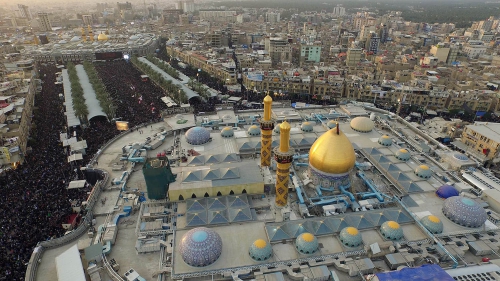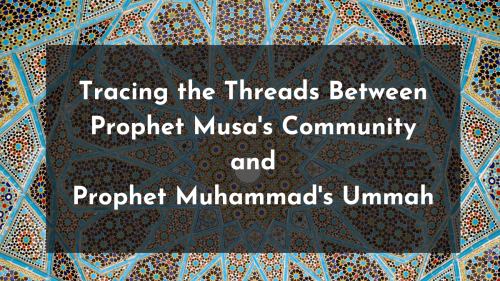Learning from the story of - Magicians and Moses

Almost universally, the confrontation between Moses and Pharaoh is branded on human culture and memory. That epic face-off evokes familiar empathy for things like justice, struggle against apparent odds, and spectacular escape and triumph. If you're a reader of the Quran, you can't help but notice how the confrontation is told in several places and that the treatments offer subtle changes in emphasis and scope. But consistently they feature two mortals of opposing archetypical mien meeting on ancient soil. One is a man of tremendous temporal authority, whose conspicuous quality is apparently incurable hubris, a narcissism that has become part of the national myth. The other is an Israelite Prophet confessing his fears and shortcomings. No polity or standing army behind him, he comes with only his brother, a warning and promise from above, and a special staff that challenges the Pharaonic serpent cult.
The Moses-Pharaoh narrative is packed with nuance. Take, for example, the sudden conversion of Pharaoh's Magicians in their contest with Moses . That stunning public announcement in favor of the God of Moses and Aaron
provokes discussion about modern reactions to spiritual awakening and the deconstruction of a continuous sacred narrative.
Moses is commanded by God to go to Pharaoh
To set it up, Moses receives the voice of God commanding him to go to Pharaoh, which he does, ultimately standing before Pharaoh and his courtiers, demanding the release of the Israelites from humiliating bondage. Moses
tells Pharaoh that he has clear proofs from "your Lord," contravening Pharaoh's own declaration of himself being the lord most high. Pharaoh taunts Moses
to show him these proofs. Moses
throws down his staff which transforms into a slithering serpent. His courtiers move in and assure Pharaoh that this is some kind of sorcery. They plot to give Moses
and Aaron unmolested respite, so that the courtiers would gather the very best and brightest among Egypt's magicians to expose the "ensorcelled" trick of Moses'
staff. Pharaoh assents and challenges Moses
to a kind of dual set for a day of festival that had communal meaning to Pharaoh's Egypt. Prior to making their appearance before the multitudes, the Magicians eagerly ask Pharaoh what their boon would be if they prevail over Moses
. Pharaoh guarantees that their place is secure with him, a proximity that comes with inducements and untold perks.
Moses and the challenge of the magicians
When the big moment arrives, the Magicians offer Moses the option to cast first or last. Moses
demands that they throw first. The Magicians then throw their cords and staffs, and they appear to turn into serpents. The Magicians exult in their accomplishment and vow "by the might of Pharaoh" that they are the victors for having bewitched the eyes of the onlookers. Internally, Moses
is strengthened by heavenly sakina that steadies his heart. He throws his staff, which not only becomes a serpent, but a serpent that gulps up the "machinations" of the magicians who suddenly are dumbfounded by what they had just seen. Aware that their "serpents" are well-done machinations that spellbind "the eyes" of the spectators, what they see in Moses'
staff is something else altogether, a true break of the natural order. To boot, the miracle swallows their prefabricated magic, which they know, perhaps better than anyone, is impossible in the realm of magic and the occult.
Magicians realize the ultimate truth
It is here that the Magicians have an epiphany, in the older sense of the word: a sudden revelation or manifestation of the truth, which creates a pointed expansion of the mind. Uninterested in Pharaoh's disappointment and unmoved by the loss of their boon, the Magicians fall to their faces in prostration and declare their belief in the unseen Lord of the worlds, the Lord of Moses and Aaron. Pharaoh is incensed that his prized Magicians would have a religious makeover without his permission. His threats are not subtle: torment, severed limbs on opposite sides, and crucifixion. He spins the embarrassing situation by claiming that the Magicians had been part of the Moses-Aaron
axis the whole time, a sleeper-cell perhaps. Inspired by the inner roar of awakening, the Magicians are unimpressed with what Pharaoh may do to them. They restate their resolve and affirm that regardless of what they are forced to endure, they ultimately will return to God, a short journey obliged to all, the tormented and the tormentors alike.
The Magicians' spiritual makeover speaks to what we observe of our context today, specifically, the diminishing role of the "universal storyteller," a term coined by theologian and professor Robert W. Jenson, who correctly laments postmodern pressures to dismiss the notion of an unbroken sacred narrative that permeates the entirety of time. This sacred narrative is a continuous, supernal line of thought and perspective that answers unchanging questions of human origin, purpose, and post-soil existence. This narrative, moreover, is not squeamish about attaching values to human conduct; it stoutly raises issues about morality, ethics, and consequences, all associated with "teachings" that are universal and timeless.
If we look at the Magicians again, these masters of the dark arts had a peculiar reaction to their defeat-a reaction outwardly inconsonant with their strutting just moments before. It's one thing to realize that what Moses threw down was truly otherworldly. Responding is something else. The Magicians' hearts could have merely sunk at Moses'
triumph; they could have despaired of their fate in the face of such humiliation; they could have tried to conjure up excuses to spare their lives or to save face. But what their realization unveiled was irrepressible, and their reaction to it was connected to the presence of a sacred narrative that survived Pharaonic pressure and cult.
Abrahamic message continues
For all the religio-babble and tyranny of Pharaoh, the Abrahamic message of monotheism did not lose traction. How it dodged dilution and meaninglessness in that Egyptian context is something to study, particularly as it relates to the presence of the Israelites, regardless of their station in Egypt. We do know that the Magicians boldly took refuge in the "Lord of Moses and Aaron," and you sense that the option to do so was available even in the political straits of ancient Egypt. Within a short span of time, the Magicians moved from Pharaoh's delight to his utter scorn; from the promise of a life of privilege to a sentence of crucifixion; from champions of the occult to devotees of the great Lord of the worlds, unseen and all-powerful.
Thoughtful men and women representing various faith communities observe the modern dilution of all things sacred. The insistence that truth is closely attached to historical currents and, therefore, should be deconstructed and reinvented as the "times" and history change seriously threatens modern man's receptivity to divine signs and, yes, epiphanies. The raucous handling of the "past" tells the dull progression of humankind as measured by the tools we invent and irreverently denies the freshness and relevance of sacred beliefs established thousands of years ago.
It's unlikely that there's ever been unanimity about these critical questions of human existence and purpose. Religious thoughts and philosophical paradigms have been numerous, diverse, and conflicting. But what has consistently poked out as essentially unchanged and remarkably relevant is the oneness of God and our return, as preserved by the gracious Abrahamic narrative, Israelite then Ishmaelite. It seems that the great challenge of this tradition is to reaffirm the continuous nature of the sacred narrative and reclaim its inarguable importance in human life.
Ibrahim N. Abusharif is a Chicago-area writer and editor of Starlatch Press. He also maintains a blog at http://fromclay.blogspot.com He can be contacted via e-mail at [email protected]
Topics: Pharaoh, Prophet Moses (Musa) Values: Education
Views: 21943
Related Suggestions
asked his chiefs to bring him sorcerers from all the cities for
competition with Moses.When they assembled (magicians) they
asked Pharaoh as to what they would get in return if they won
the competition? And they were told and assured that they would
be among those brought near (to Pharaoh).In the end Moses asked
them to throw what they were going to throw.So they threw their
ropes and sticks proclaiming " By the might of Pharaoh it is we
who will certainly win".Then Moses threw threw his stick,and
behold,it swallowed up all that they falsely showed.Therefore
the sorcerers (after seeing the reality defeated in the
competition had no choice but) fell down prostrate.Saying "We
believe in the Lord of the World the Lord of Moses and Aaron
(His Brother).(As Dictator Pharaoh) said "So you believed in him
(Moses) before I give you the permission to do so.Surely he
indeed is your Chief( of sorcerers) who has taught you
magic(according to his foolishness and arrogance).So verily you
shall come to know (threatening them so as to become sacred
continuing) Verily I will cut off your hands and your feet on
opposite sides and I will crucify you all.(But because the
Magicians saw the reality retorted) "No harm surely to our Lord
(Allah) we are to return and Verily we hope our Lord will
forgive our sins as we are the first of the believers (who
believed in Moses (no longer worshiping Pharaoh).So therefore
the story is a lesson for all of us believing in the truth and
denying falsehood.May Allah give us taufiq
I want here to affirm that the term "...Abrahamic narrative, Israelite then Ishmaelite" is not passing from one to another by way of abrogation. But what is to Israel is also to Ishmael by the same Lord that acts in mercy to one and another alike. We need the ears and temperance to grasp what He grants abundantly in His Grace. This is ministered by the mediator of the new covenant Lord Jesus Christ (His Peace and Blessings be upon us). None that are opposed to the Christ have the good in their lives...

















